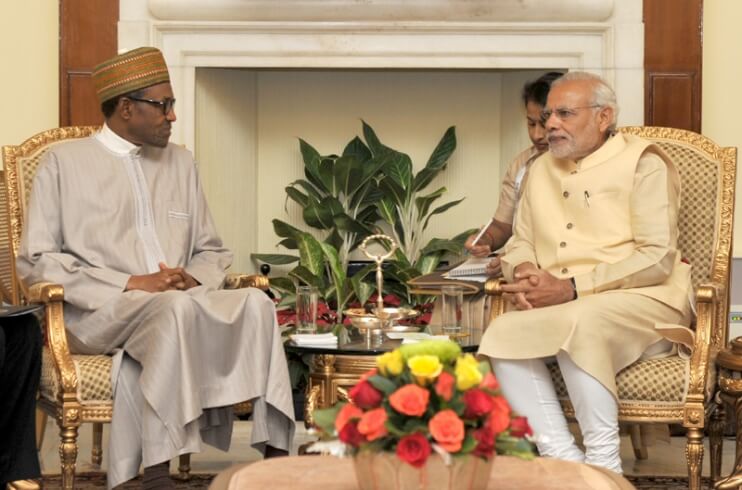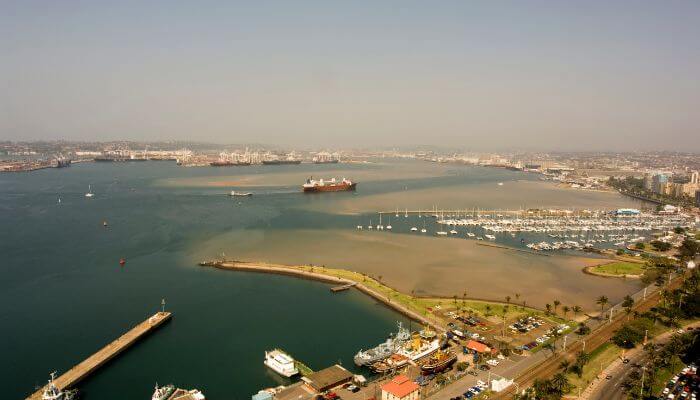Infrastructure Deal Between India and Nigeria to Change Agriculture and Shipping Ports

11th September 2023
Overview: India-Nigeria infrastructure deal
India and Nigeria have signed a landmark infrastructure deal aimed at bolstering agriculture and enhancing shipping ports in the West African nation. The agreement, reached after months of negotiations, is expected to bring about significant improvements in Nigeria’s agricultural sector and boost its trade potential through upgraded ports.
The bilateral deal, valued at over $2.5 billion, was officially sealed during a virtual summit between Indian Prime Minister Narendra Modi and Nigerian President Muhammadu Buhari. Both leaders expressed their commitment to strengthening the economic ties between their countries.
Transforming Nigerian Agriculture
One of the key aspects of the agreement is the focus on revamping Nigeria’s agriculture sector. Nigeria, known as the “Giant of Africa,” has a vast agricultural potential that has not been fully realized due to inadequate infrastructure and outdated farming practices.
Under the terms of the deal, India will provide technical expertise and financial support to modernize Nigeria’s farming techniques. This includes the introduction of advanced irrigation systems, the use of high-yield crop varieties, and the implementation of sustainable farming practices.
Indian agribusiness companies are expected to play a crucial role in this transformation by sharing their knowledge and technology. This collaboration aims to increase agricultural productivity in Nigeria, reduce post-harvest losses, and improve food security for its growing population.
President Buhari expressed his optimism about this aspect of the deal, stating, This partnership with India will help us unlock the full potential of our agricultural sector. It will not only benefit our farmers but also contribute to food security across the continent.
Upgrading Shipping Ports:
Another significant component of the agreement is the enhancement of Nigeria’s shipping ports. Nigeria is strategically located on the Gulf of Guinea, making it a critical hub for trade in West Africa. However, its ports have faced several challenges, including congestion, inadequate infrastructure, and outdated technology.
India, with its experience in managing one of the world’s busiest ports in Mumbai, is set to assist Nigeria in modernizing its port facilities. This will involve improving container handling capabilities, enhancing security measures, and implementing digital solutions to streamline port operations.
The upgraded ports are expected to facilitate faster and more efficient movement of goods, not only within Nigeria but also in the broader West African region. This development aligns with Nigeria’s ambition to become a regional trade and logistics powerhouse.
Prime Minister Modi highlighted the significance of this infrastructure upgrade, stating, Nigeria’s ports are critical to the economic development of not only Nigeria but the entire region. Our collaboration will not only benefit Nigeria but also contribute to the growth of West African economies.

Strengthening Bilateral Ties: India-Nigeria infrastructure deal
The India-Nigeria infrastructure deal is seen as a testament to the strong and growing relationship between the two countries. India has been actively engaging with African nations in recent years, focusing on economic cooperation and development partnerships.
President Buhari commended India’s approach, saying, “India has been a reliable partner in our journey towards economic transformation. This infrastructure deal is a testament to the friendship and cooperation between our two nations.”
Both leaders also discussed opportunities for further collaboration in areas such as healthcare, education, and renewable energy during their virtual summit.
Economic Impact: India-Nigeria infrastructure deal
The India-Nigeria infrastructure deal is expected to have a significant economic impact on both countries.
For India, this deal opens up new avenues for investment in Africa. It provides Indian companies with opportunities to expand their presence in Nigeria and the wider West African market. Additionally, by supporting Nigeria’s agricultural sector, India can secure a stable source of agricultural products, ensuring food security for its own population.
On the Nigerian side, this agreement is anticipated to drive economic growth. The modernization of agriculture and shipping ports will create jobs and boost trade, potentially reducing Nigeria’s reliance on oil exports and diversifying its economy.
Environmental Considerations
While the focus of the deal is on economic development, both India and Nigeria have also committed to addressing environmental concerns. Sustainable farming practices, water management, and energy-efficient technologies will be integrated into the agricultural transformation process.
Furthermore, the upgrade of shipping ports will include measures to reduce environmental impacts. Efforts will be made to minimize pollution and promote cleaner energy sources.
Conclusion
The India-Nigeria infrastructure deal represents a significant step forward in the economic partnership between the two nations. By focusing on agriculture and shipping ports, this agreement has the potential to transform Nigeria’s economy, improve food security, and enhance regional trade in West Africa. As both countries move forward with implementation, the positive impacts of this collaboration are expected to be felt for years to come, strengthening the bonds between India and Nigeria.
Click here to join our Telegram chanel
You will get information, news, and support related to Merchant Navy.
